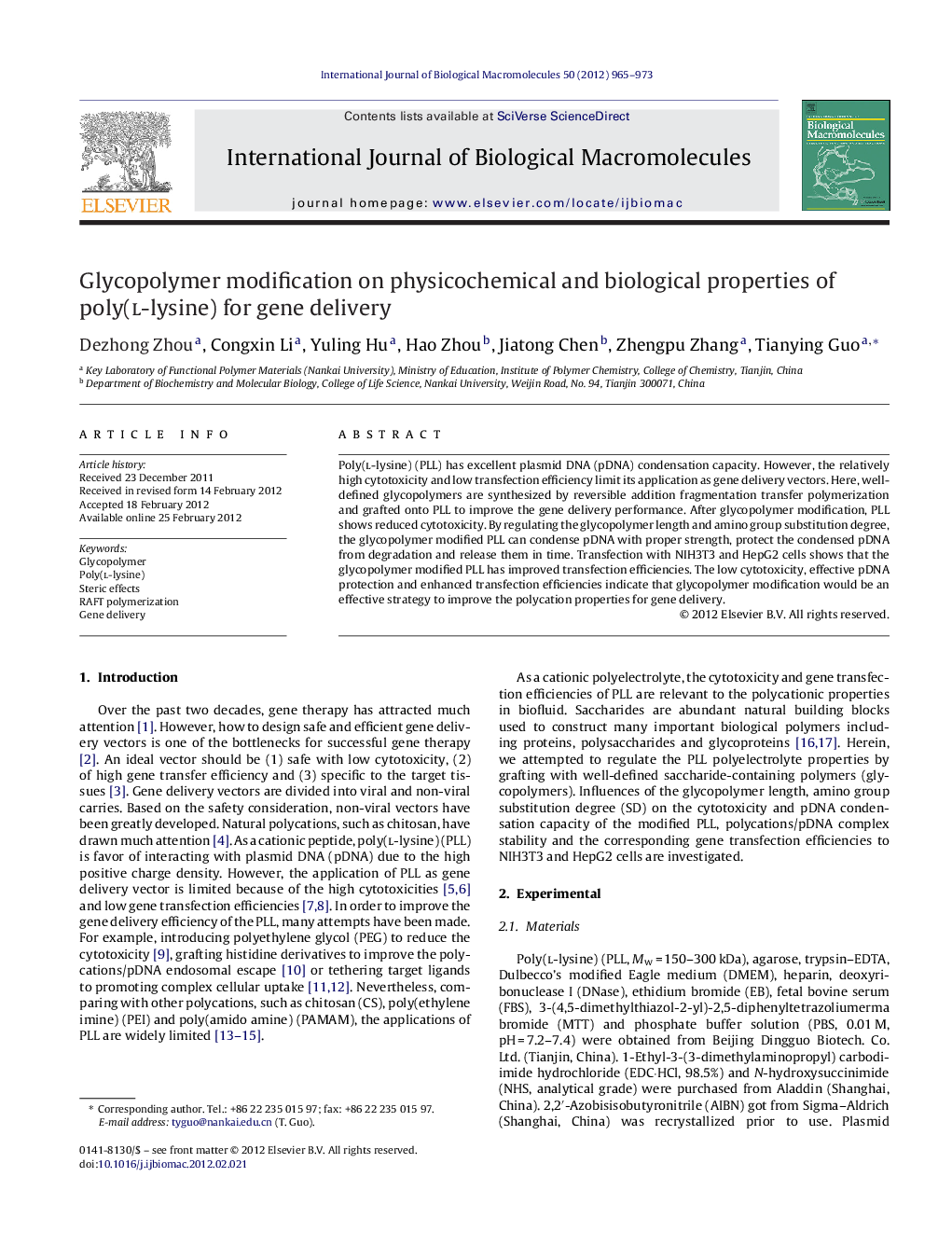| Article ID | Journal | Published Year | Pages | File Type |
|---|---|---|---|---|
| 1987190 | International Journal of Biological Macromolecules | 2012 | 9 Pages |
Poly(l-lysine) (PLL) has excellent plasmid DNA (pDNA) condensation capacity. However, the relatively high cytotoxicity and low transfection efficiency limit its application as gene delivery vectors. Here, well-defined glycopolymers are synthesized by reversible addition fragmentation transfer polymerization and grafted onto PLL to improve the gene delivery performance. After glycopolymer modification, PLL shows reduced cytotoxicity. By regulating the glycopolymer length and amino group substitution degree, the glycopolymer modified PLL can condense pDNA with proper strength, protect the condensed pDNA from degradation and release them in time. Transfection with NIH3T3 and HepG2 cells shows that the glycopolymer modified PLL has improved transfection efficiencies. The low cytotoxicity, effective pDNA protection and enhanced transfection efficiencies indicate that glycopolymer modification would be an effective strategy to improve the polycation properties for gene delivery.
